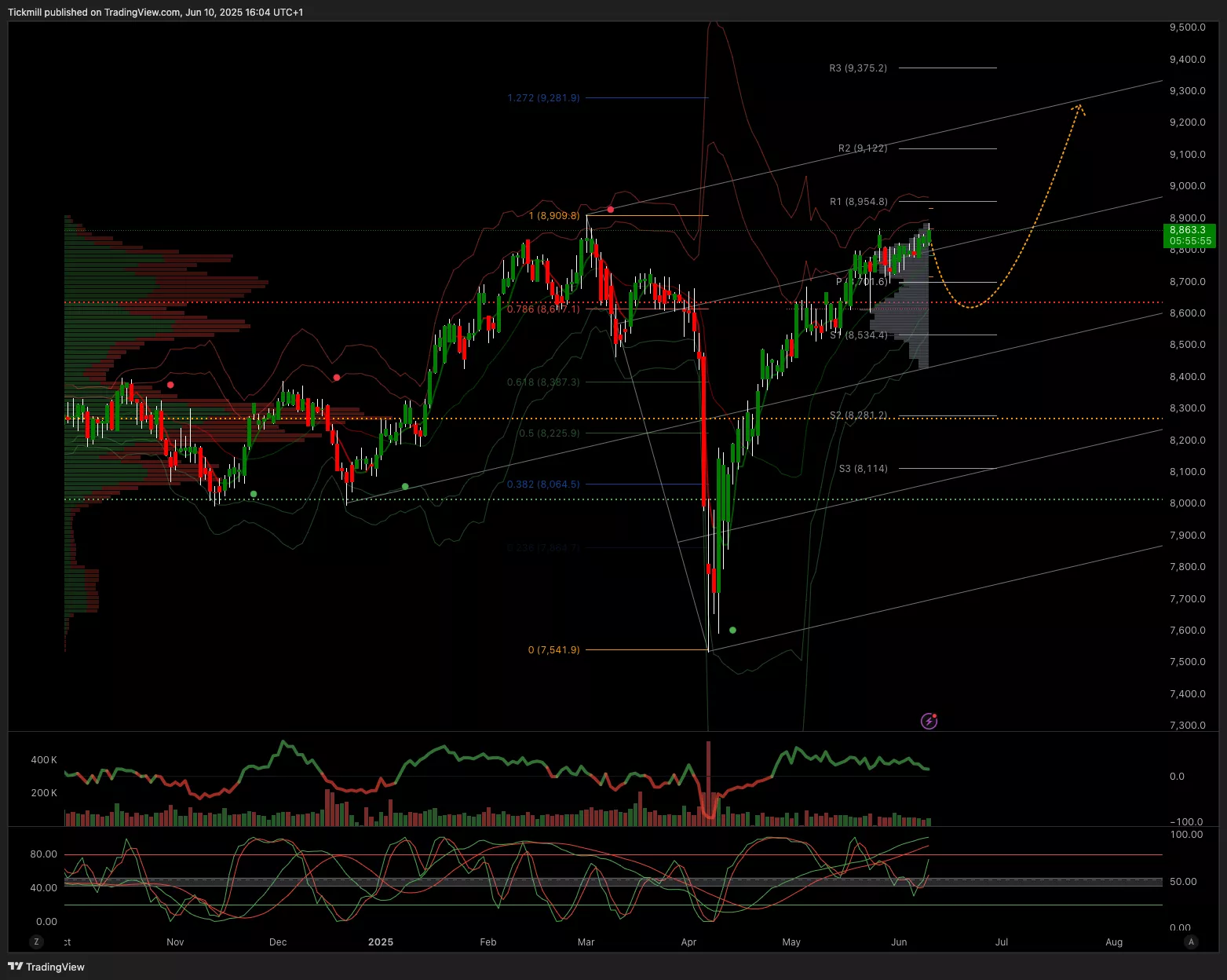The FTSE Finish Line - Tuesday, June 10

Image Source: Pexels
London shares rose on Tuesday following weaker labour market data, bolstering expectations of further interest rate cuts this year. Investor focus also remained on the U.S.-China trade talks. Data released this morning revealed a sharp slowdown in pay growth in Britain and a rise in unemployment to its highest level in nearly four years during the three months to April. It’s understandable to feel some sympathy for the Bank of England at this juncture. Inflation has risen, driven by regulated price changes, which are outside the control of the Monetary Policy Committee (MPC). However, the challenge of looking past this noise is compounded by persistently high wage growth, which creates significant long-term challenges. Adding to the complexity is the disconnect between economic surveys and realised data. For example, while the Purchasing Managers’ Index (PMI) has been weak, Q1 growth was robust, and retail sales have recently rebounded. Forward-looking indicators have signalled economic pain, yet the BoE’s more pessimistic forecasts have repeatedly appeared off the mark. This combination of factors, along with heightened global uncertainties, has muddied monetary policy communication. This issue seems particularly pronounced in the UK; while the Federal Reserve and European Central Bank have also been cautious in committing to specific policy paths, their approaches appear more cohesive. By contrast, voting patterns within the BoE’s committee have become unpredictable and inconsistent. The revised Labour Force Survey (LFS), released on Tuesday, adds another layer of complexity. The survey, crucial for understanding the labour market, has faced significant challenges due to a breakdown in participation, prompting the Office for National Statistics (ONS) to overhaul its methodology. Many respondents have simply stopped engaging with the survey, leaving its current form compromised and its accuracy in doubt. This creates a significant problem for the BoE, as it struggles to rely on such data for informed decision-making.
Meanwhile, investors closely monitored ongoing trade negotiations between the world’s two largest economies, now in their second day, seeking signs of progress toward resolving the tariff dispute that has disrupted global supply chains and hampered economic growth.
Single Stock Stories & Broker Updates:
-
Diageo shares rose 1.7% to 2,007p, making it a top gainer on the FTSE 100. The company is exploring options for its stake in IPL's Royal Challengers Bengaluru, including a potential sale. Valuation may reach $2 billion, but discussions are in early stages. Year-to-date, Diageo's stock is down 21.58%, while United Spirits is up 0.08%.
-
British homebuilders index rises 2.8% to 11,640.65 pence, outperforming FTSE 350 and FTSE 100. Bellway gains 5%, raising its annual volume output forecast to 8,600–8,700 homes. Aynsley Lammin from Investec cites reassurance from BWY's trading update and lower SWAP rates due to weak UK jobs data as factors lifting housebuilder shares. Other homebuilders Persimmon, Barratt, Redrow, and Taylor Wimpey gain 4%, 3.3%, and 2.7%, respectively. The sub-index is up 3.7% YTD.
-
Marks and Spencer's shares rose 3.4% to 371.9p, making it one of the top gainers on the FTSE 350 index, which is up nearly 0.35%. The retailer has resumed online clothing orders after a 46-day break due to a cyberattack, focusing on bestsellers and new items. Delivery to Northern Ireland and click and collect services will restart in the coming weeks, alongside next-day, nominated-day, and international deliveries. Overall, the stock is down 1.5% year-to-date.
-
Shares of Oxford Instruments, a nanotechnology tools maker, dropped 7% to 1,768p, making it one of the top losers on the FTSE mid-cap index, which rose 0.39%. The company delayed its preliminary results for fiscal 2025, originally due on June 10, due to auditors needing more time. OXIG has agreed to sell its quantum-focused division, NanoScience, to Quantum Design for £60 million ($80.78 million). Approximately £4 million of costs associated with NanoScience will remain with the company post-sale, with mitigation expected by fiscal 2027. Additionally, the company plans to return up to £50 million to shareholders through a share buyback. As of Monday's close, the stock had decreased by 11.6% in 2025.
-
Aberdeen Group's stock rises 6% to 195p, its highest since August 2023, becoming a top performer on the FTSE 250. J.P. Morgan upgrades the stock to "overweight," raising the price target from 164p to 218p due to improved fund flows and strong growth in its digital platform "interactive investor." The average rating remains "hold," with a median target of 152.5p. Year-to-date, shares have gained about 36%.
-
Shares of FirstGroup rose 3.3% to 205.6p, the highest since September 2012. The company announced a £50 million share buyback and reported an FY adjusted operating profit of £222.8 million, surpassing expectations. It expects to maintain adjusted EPS for FY26 compared to FY25, and the stock is up ~25% YTD.
Technical & Trade View
FTSE Bias: Bullish Above Bearish below 8700
- Primary support 8500
- Below 8500 opens 8250
- Primary objective 8900
- Daily VWAP Bullish
- Weekly VWAP Bullish
(Click on image to enlarge)

More By This Author:
Daily Market Outlook - Tuesday, June 10
The FTSE Finish Line - Monday, June 9
S&P 500 Weekly Action Areas & Price Targets - Monday, June 9



